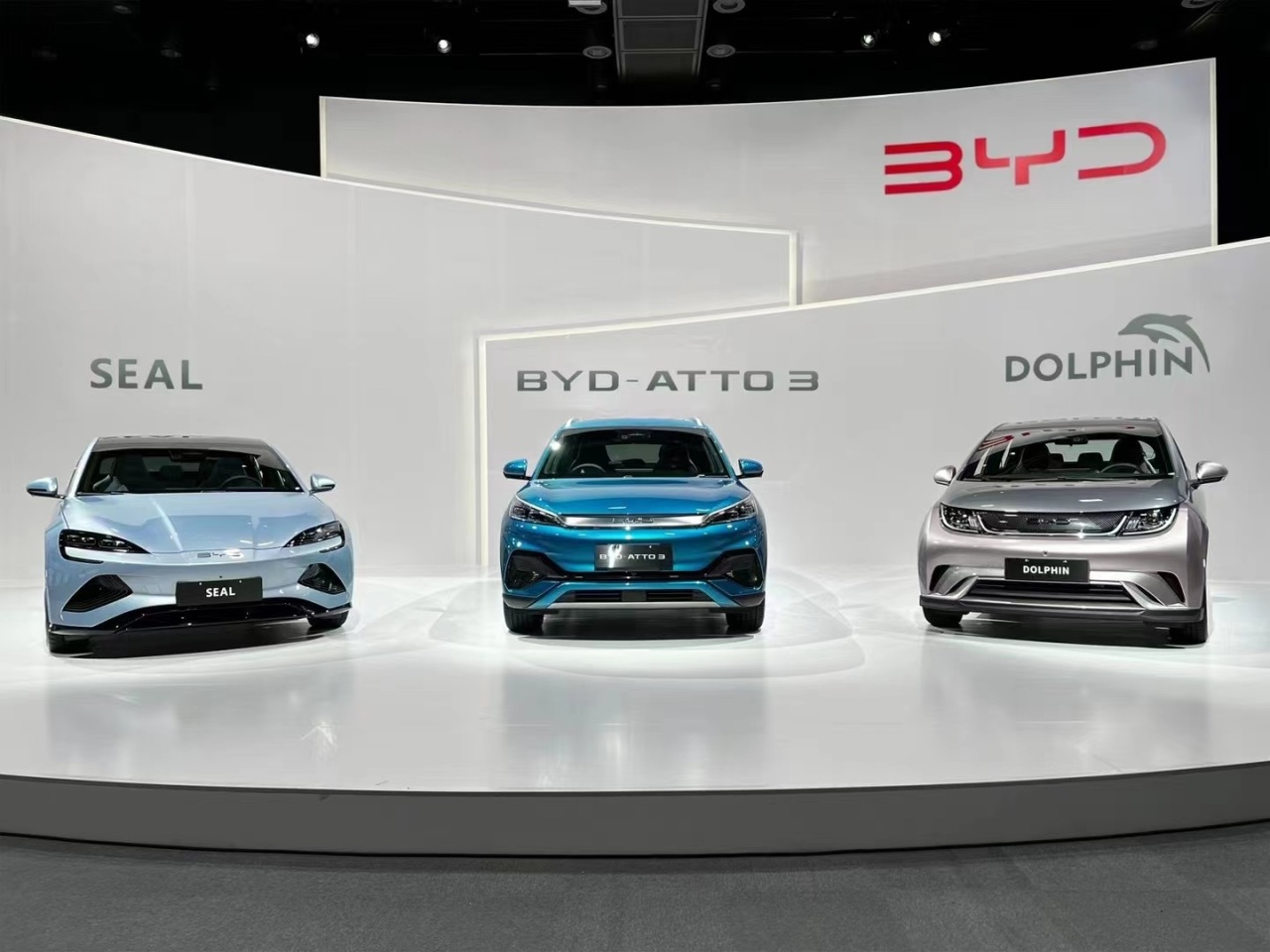
BYD, the world’s largest electric vehicle maker, is getting ready for EV sales in the South Korean market, going head to head against the country’s top automaker Hyundai Motor Group with lower price tags and better performing cars.
Industry sources said Sunday that BYD recently inked a deal to rent an office near Seoul Station in central Seoul and started recruiting personnel, including those for vehicle registration, after-sales services and marketing activities.
Since the launch of BYD Korea in 2016, the carmaker has thus far sold commercial vehicles only such as electric buses and forklifts here.
The Chinese auto giant also registered trademarks for its six car models, including Seal, its latest EV launched earlier this month, in an apparent sign of their imminent market debuts here. The Seal is BYD’s first EV with battery cells directly integrated into the underbody, which is called cell-to-body (CTB) battery technology.
Market insiders said Seal will compete head-on with Hyundai Motor’s Ioniq series cars. Priced between 220,000 and 290,000 yuan ($32,600-$43,000) in the mainland, its power outage is above 530 horsepower with a traveling distance up to 700 kilometers per single charge, depending on the battery type. The driving rage outpaces the 524 kilometers of Hyundai’s Ioniq 6 that will go on sale later this year.
According to market tracker SNE Research, BYD sold the most EVs around the world in the first six months of the year with 647,000 units, followed by Tesla with 575,000 units. The figure more than tripled from a year ago, already surpassing last year’s total sales at 609,000 units.
Started as a battery maker based in Shenzhen in 1995, BYD began making passenger cars from 2003. BYD -- the first in the industry -- stopped manufacturing gasoline cars from April this year, only focusing on EVs and plug-in hybrid models. Billionaire investor Warren Buffet is one of its key investors.
Despite its global success, it remains to be seen whether the fast-growing Chinese carmaker can repeat its success story in Korea.
Aside from the anti-Chinese sentiment among local consumers, Korean authorities have also toughened regulations for foreign carmakers to extend after-sales service centers.
“The biggest risk for BYD would be that no Chinese carmaker has succeeded in penetrating the tricky Korean market so far. Despite positive feedback to BYD’s electric buses here, its competitiveness will face a tough test,” said an industry insider.
Last year, Chinese carmakers sold only 30 passenger cars, including 24 Fengon ix5 SUVs of Dongfeng Motor, in the Korean market.






![[KH Explains] Can tech firms' AI alliances take on Nvidia?](http://res.heraldm.com/phpwas/restmb_idxmake.php?idx=644&simg=/content/image/2024/05/07/20240507050619_0.jpg&u=)


![[Grace Kao, Meera Choi] Has money displaced romance on dates?](http://res.heraldm.com/phpwas/restmb_idxmake.php?idx=644&simg=/content/image/2024/05/06/20240506050233_0.jpg&u=)








![[K-pop’s dilemma] Time, profit pressures work against originality](http://res.heraldm.com/phpwas/restmb_idxmake.php?idx=652&simg=/content/image/2024/05/08/20240508050705_0.jpg&u=20240508171126)
![[Today’s K-pop] NCT Dream to drop pre-release from 2nd Japan single](http://res.heraldm.com/phpwas/restmb_idxmake.php?idx=642&simg=/content/image/2024/05/08/20240508050725_0.jpg&u=)